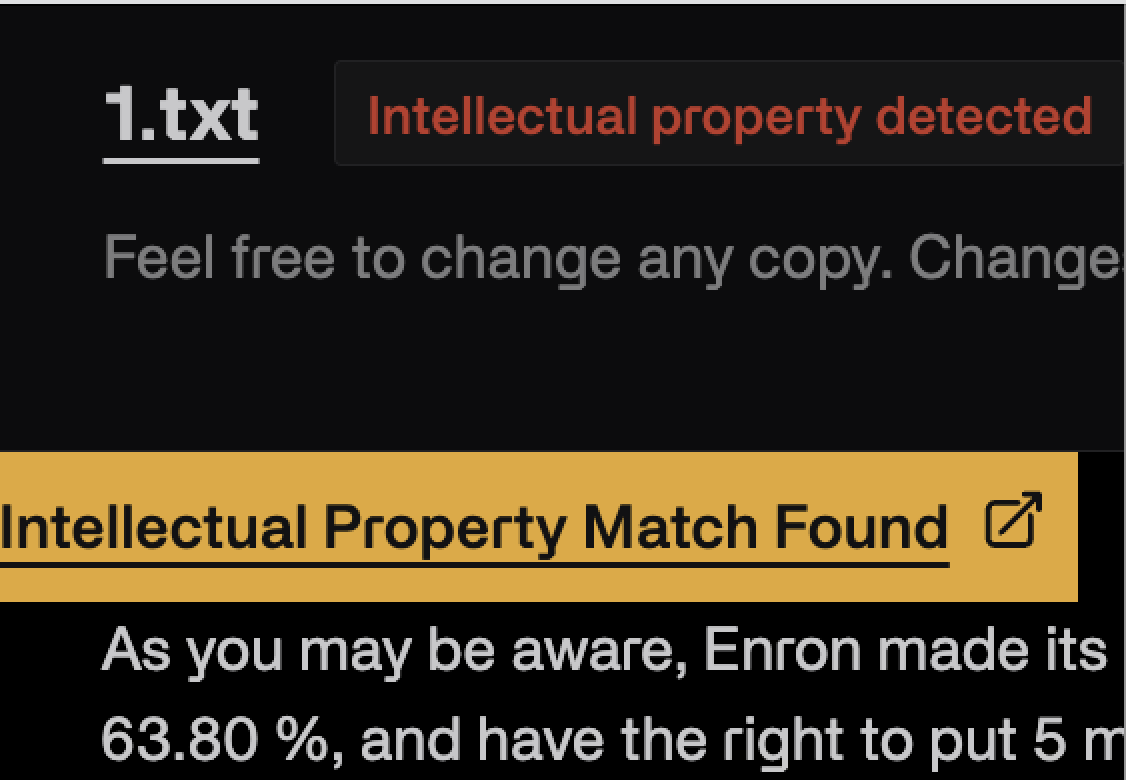3 min read
How Bedrock Security Protects Your Most Important Data
 Ganesha Shanmuganthan
:
Jun 5, 2024 1:56:53 PM
Ganesha Shanmuganthan
:
Jun 5, 2024 1:56:53 PM

These days, security teams have a host of vendors and technologies to choose from to protect their data. But, surprisingly, most of these options are not well-suited to safeguarding an organization's most important data: its core IP (intellectual property).
As a result, many efforts to better protect sensitive and strategic datasets are inadequate and still leave IP at risk. Or, at the other extreme, the security in place is so onerous that it slows down business operations, making it harder for the right people to use the right data for the right business purposes.
With this critical challenge in mind, Bedrock has pioneered data security technology that makes it possible for organizations to accurately and easily “fingerprint” their unique IP data to identify, track, and protect their most valuable digital assets.
In addition, the Bedrock data security platform offers a host of capabilities such as comprehensive entitlement mapping and automated policy monitoring and validation. Combined with our unique ability to accurately identify unique IP data, Bedrock offers unprecedented security protections for an organization’s most strategic information.
Accurately Identify and Track IP Data
Unlike other data security technologies, the Bedrock platform can recognize the unique structure of IP data and understand on a relatively deeper level what the data actually means, including its business context. In this way, you can train Bedrock to learn the unique “fingerprint” of data related to your core IP. And Bedrock can detect IP data even if it is buried deep within other datasets.
For example, Bedrock is working with a life sciences company to protect its proprietary genetic sequences. With our fingerprinting technology, we can understand on a protein level what the actual individual characters mean in the context of a synthetic DNA sequence. This allows the Bedrock platform to recognize this type of data, regardless of where it might travel.
We are also working with an audio company that has developed its own algorithms for digital signal processing. With our fingerprinting technology, we can differentiate between that code and any other software code the company uses.
But simply being able to identify original IP data isn’t enough. One of the biggest challenges of protecting IP data is not only identifying the original data but also recognizing that data when it has been copied and altered. Our fingerprinting technology makes it possible for us to provide this kind of data lineage tracing.
Going back to the example of our life sciences customer, we are able to safeguard its 10,000+ gene sequences by being able to recognize copies and derivative versions to ensure no part of those gene sequences leak from the organization or move into inappropriate data stores.
Tracking data lineage can be particularly helpful with organizations that undergo mergers and acquisitions. Our ability to identify copies and altered versions of IP data can help keep the IP data of an acquired company from accidentally leaking into the data stores of other acquired companies under the broader parent organization.
Reducing Attack Exposure for Your IP Data
With the ability to accurately identify their IP data — whether original or modified — organizations can then use a host of foundational capabilities on the Bedrock platform to safeguard their most important data.
For example, our customers can leverage Bedrock’s entitlement mapping to identify which entities have access to core IP data. The Bedrock platform provides industry-leading entitlement mapping that walks the full access tree to identify any primary or secondary access paths to datasets.
Bedrock can also determine the usage activity of any employee that has access to IP data. With this capability, organizations can identify inactive users who might not need access. Bedrock can then suggest a best-practices workflow to most effectively reduce the total number of users that have access to IP data, helping shrink the overall attack surface for that data.
Building Policies for IP Protection
With the Bedrock platform, organizations can easily use both pre-built and custom policies to establish Bedrock Trust Boundaries, which ring-fence IP data to keep it from moving outside of authorized data stores.
Security teams can also use Trust Boundaries to define who has access inside the ring fence of IP data and enforce least privilege protections. This is another way organizations can be as restrictive as possible with IP data access.
Least-privilege constraints are critical to reducing possible paths to the IP data in the event of a security breach somewhere else in the network. The fewer paths to the data, the better. And once Trust Boundaries are defined, Bedrock ensures they stay that way.
With Bedrock policies, organizations can also automate other safeguards for IP data, such as implementing data hardening practices (encryption, tokenization, etc.).
Bedrock also provides policy tags that can automate security enforcement by cloud service providers or other platforms, ensuring IP data stays protected even outside the corporate network.
Scalability for Today’s Data Environments
Once IP data protection policies are established, Bedrock’s highly scalable and cost-effective platform makes it viable (economically and operationally) for organizations to continuously monitor their IP data across corporate networks and cloud environments, ensuring any policy violations will be immediately identified for remediation.
Unlike traditional data security posture management (DSPM) platforms, Bedrock can easily scale to petabytes of data, with 10X lower operational costs (far faster with less compute resources required) compared to other data security options.
The Bedrock AIR Engine uses Bedrock’s patented Adaptive Sampling technology to dramatically lower the computational demands of classifying and controlling access to data. Adaptive Sampling intelligently groups similar data together and focuses attention on data stores containing sensitive data, greatly reducing the computational work required to gain an accurate and comprehensive view of an organization’s data landscape.
Bedrock has also developed a way to distribute log parsing infrastructure to quickly process huge volumes of data access logs and effectively pinpoint exfiltration of your IP data.
Thanks to its breakthrough scalability and accuracy, Bedrock can continuously provide your organization with a full picture of what data you have, how sensitive it is, and where it’s going.
I encourage you to try a demo of the Bedrock platform and see for yourself how the Bedrock platform can safeguard your most valuable data.
-1.png?width=588&height=164&name=type=Wordmark-01%2c%20Theme=Dark%20(1)-1.png)